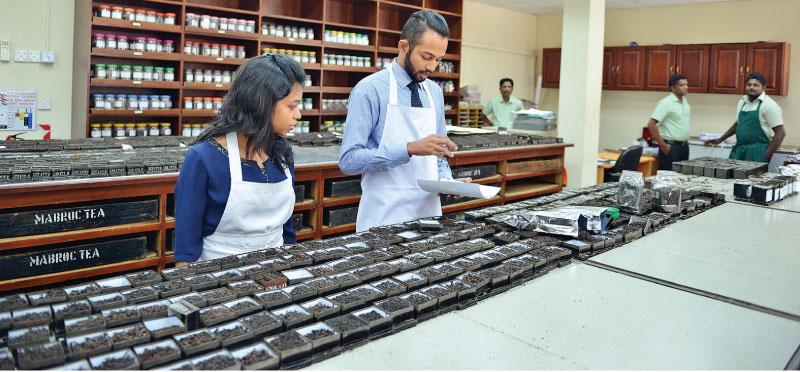

Minister of Plantation Industries, Navin Dissanayake will visit Russia as soon as the necessary logistical arrangements are made and work with his Russian counterparts to resolve the temporary ban imposed by Russia on tea exports on Thursday, the Ministry said on Friday.
“We have sought a meeting with the Russian authorities and the Minister has said he will travel on any date to swiftly address this issue,” Sri Lanka Tea Board Chairman, Rohan Pethiyagoda said on Friday.
The Russian agricultural safety watchdog, Rosselkhoznadzor introduced restrictions on the import of plant products (including tea) from Sri Lanka, to take effect for shipments leaving Sri Lanka on or after December 18, 2017. This follows the detection of a single specimen of an agricultural pest, the beetle Trogoderma granarium in the packaging material of a consignment of tea shipped from Sri Lanka.
“The Ministry of Plantation Industries and the Sri Lanka Tea Board are working very closely with all the relevant agencies of government, including the Ministry of Foreign Affairs and the Department of Commerce to restore normal trade between the two countries as soon as possible,” the statement by the Plantations Ministry said.
However, Chairman of the Sri Lanka Tea Board, Rohan Pethiyagoda said they are of the view that the specimen discovered in the packaging material may have remained in the shipping container concerned following the use of this container for the transport of grain on a previous occasion, not necessarily of Sri Lankan origin. “This beetle is a pest of grain crops such as rice, and has never been associated with tea.
It has probably nothing to do with any particular supplier, but simply an insect which was lying in the shipping container. It may not have been found in the tea but in the packaging, perhaps in the crating,” Pethiyagoda said.
Nevertheless, the Plantations Ministry emphasised that Sri Lanka is anxious to protect the standards and quality for which Ceylon Tea is renowned worldwide and is working with tea producers and exporters to ensure that phyto sanitary and other standards are rigorously followed in all shipments of tea originating in Sri Lanka.
The statement added that the present case is an isolated incident and in any case, not a reflection on the quality of Ceylon Tea.
“While imposing these restrictions on Sri Lanka, the Russian authorities have made it explicitly clear that it is of a temporary nature and will last only until the completion of negotiations and clarification of the situation with the competent authority of Sri Lanka,” the statement said.
Meanwhile, the Chairman of the Tea Exporters Association, Jayantha Karunaratne said they were concerned about the ...situation but that it was still not clear whether the said insect was found in a packeted shipment or a bulk shipment.
“The ban has been imposed without any official intimation to the country or the Quarantine Department, Health Department or even the supplier of tea. However, Russia is an important market which purchases about 40 million kilos of tea per year amounting to about 15% of total tea exports,” Karunaratne said.
According to tea export statistics, from January to October this year, Russia has been Sri Lanka’s second largest importer of Ceylon Tea after Turkey while Iraq and Iran secure the third and fourth positions.
Boosted by a pickup in prices, Sri Lanka’s tea exports in October rose by 10% to 25.5 million kilos from a year ago while earnings rose sharply by 25% to Rs. 21 billion compared to the previous year.
On the other hand, total tea exports in the January-October 2017 period has, however, declined by 4.3 million kilos to 241.3 million kilos compared to the corresponding period in 2016, with all categories of exports witnessing a reduction.
